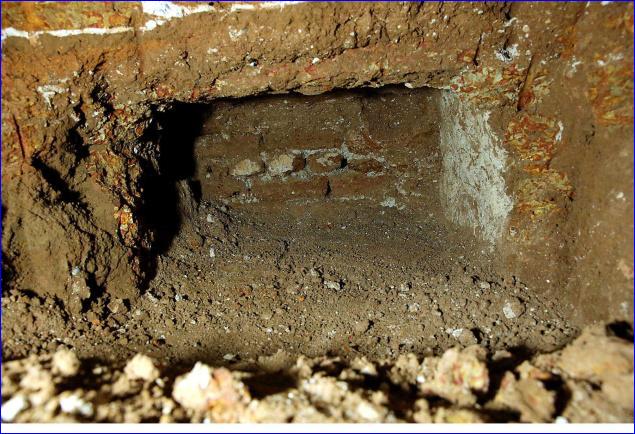


Though Kerala church history records show that the Bishop was buried in the sanctuary of the church, there was no physical evidence to back the claims.
The discovery, in the sanctuary of the church, came while the parish authorities were in the process of renovating the church, built in 1585 by the Chaldean bishop, who had sought refuge in Angamaly as the town did not have a Portuguese garrison.
Mar Abraham was the last foreign East Syrian Metropolitan with the title 'Metropolitan and Gate of All India' who resided at Angamaly, said parish rector Kuriakose Mundadan, who was among the group which initially discovered the tomb.
"It is a laterite structure, about 10 feet below the present sanctuary, built with a protective arch as if to prevent anyone from accessing it and removing its contents," said Varghese Angamaly, a local historian who visited the site.
Mr. Varghese said that Mar Abraham had named the church after Abbot Hormis, but it was renamed as St. Hormis Church at the Udayamperoor synod in 1599, two years after Mar Abraham died.
Fr. Mundadan said that after Mar Abrham's demise, the superior of Archdiocese of Goa, Dom Alexis Menzes, demoted the Angamaly church and brought it under the control of Goa Archdiocese by appointing Fr. Francis Ross as Bishop of Angamaly.
The cause for the rivalry was that Bishop Abraham was considered a proponent of Nestorianism, an anathema to Rome.

or register to post a comment.